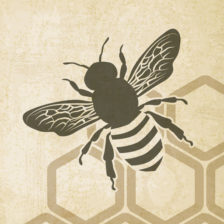The Apis Information Resource Newsletter for January 22, 2016 has been published. It features a review of the American Beekeeping Federations’ convention:
I attended the American Beekeeping Federation (ABF) Conference and Trade Showsouth of Jacksonville, Florida. Attendance appeared to be above normal and the weather cooperated. Sadly, it was re-confirmed that the U.S. bid to host the world apicultural congress (Apimondia) in Minneapolis in 2019 was unsuccessful. One hopeful aspect is that the event will at least be held in North America (Montreal). Perhaps both the U.S. And Canada will be able to share exposure of their unique yet often varied kinds of beekeeping with the large foreign audience that is expected to attend.
Although many subjects were covered at the trade show, pesticides seemed to be on everyone’s mind and it crept into most discussions. The neonicotinoid class of pesticides, often blamed for Colony Collapse Disorder (CCD), got the lions’ share of the attention. The conclusion that continues to be clarified is that these chemicals are not necessarily the “smoking gun” for CCD. However, this does not mean that they get a clean bill of health for honey bees and other organisms in the environment. Dr. Geraldine Wright, Institute of Neuroscience, Newcastle University gave the keynote address on these chemicals to the American Bee Research Conference (ABRC), which also met with the Federation in Jacksonville. She concluded that “ …research, published in Nature, discovered that buff-tailed bumblebees and honeybees could not taste the three most commonly used neonicotinoid pesticides and so did not avoid them. In fact, the bees showed a preference for food which contained pesticides: when the bees were given a choice between sugar solution, and sugar solution containing neonicotinoids, they chose the neonicotinoid-laced food. The lab-based study also showed that the bumblebees ate more of the food containing pesticides than the honeybees, and so were exposed to higher doses of toxins.”
I am happy to report that it looks like the two national beekeeping groups will indeed be meeting together, along with the Apiary Inspectors of America (AIA) and the American Bee Research Conference (ABRC) in Galveston, TX. next January. Read my diatribe from last month on the origins of this historical situation, which began in Portland, OR in 1969, but may be closer to being fully resolved in 2017.


